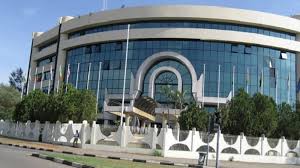The ECOWAS Commission has paid special tribute to women in West Africa in particular and women all over the world as the world celebrates the International Women’s Day on Monday.
The Commission said in a statement on Monday in Abuja that women had in this past year, braved the consequences of an unprecedented health crisis necessitated by the COVID-19 coronavirus pandemic.
“The special tribute goes to the female staff of ECOWAS who, day after day, continue to contribute significantly to our Institution’s work for the development of the sub-region,” the Commission said.
It noted that the March 8, celebration is an opportunity to highlight the economic as well as social and political achievements of women. It is an opportunity to take stock of the progress made and the challenges still facing women in relation to the recognition and protection of their rights and further take stock of the pioneer struggles of preceding years for women’s equality, and social, economic, and political rights.
“Even today, 8 March 2021, despite the precarious health situation across the globe, women are and always will be celebrated. Indeed, we will always need to celebrate them as a show of solidarity and commitment to ensuring that they exercise equal rights as men.
“As is the custom, ECOWAS adopts the global theme of the United Nations in celebration of the IWD. The theme of the 2021 IWD, “Women in Leadership: Achieving an equal future in a COVID-19 world”, is consistent with the priority theme chosen by the 65th Session of the Commission on the Status of Women, CSW65, which is the UN annual session for the promotion of gender equality and women empowerment. A forum that brings together the governments, civil society organisations, and technical and financial partners involved in gender-related matters,” it said.
According to the Commission, with the outbreak of the COVID-19 health crisis, several active women in the economy, particularly the informal sector, were hard-hit by the halt in certain economic activities, disruptions in the processing and distribution of agricultural products, reduction in household income, not forgetting the reduction in opportunities for the most vulnerable households.
“Regarding women in leadership and positions of authority, inadequate resources and the feminisation of poverty hamper women’s involvement in the leadership roles of political parties or in society. Moreover, harmful social and cultural norms and practices such as unequal access to education, training, financial resources, and healthcare equally hamper the development and empowerment of the West African woman.
“Regarding gender-based violence, there has been a resurgence of the phenomenon despite the existing legal arsenal in our respective Member States. This trend therefore presents the critical need to strengthen, on the one hand, awareness and impunity, and on the other hand, the holistic care of victims of moral, physical and economic violence. Unfortunately, the trend is not unconnected to the fallout of the COVID-19 coronavirus pandemic on the life of women.
“Nevertheless, the contribution of women in the fight against this pandemic demands reflection, bearing in mind the essential role of women in our societies when it comes to caring for the sick, providing family food security and supervising the education of children,” the statement said.
The Commission recalled its numerous initiatives for women empowerment and the fight against gender inequality and that since the outbreak of the pandemic, the Commission has developed an “ECOWAS action plan for a gender approach to the COVID-19 coronavirus pandemic”, which comprises several strategic focus areas including a recovery plan for women entrepreneurs.
According to the Commission, the women’s day is therefore an opportunity to take stock of all our initiatives aimed at promoting women’s rights and consolidate achievements for an even more equal West Africa in terms of the rights and duty of each citizen.
“Now more than ever before, we feel duty-bound to celebrate women given the obvious fact that sustainable development, social and political stability, and economic growth cannot be attained when a section of the population is marginalised.
“We will therefore continue to strive towards greater access to training, decent and productive employment, and social protection. We will help to ensure access to loans, property, inheritance, natural resources, and the establishment of gender sensitive frameworks.
“We will equally help to ensure full and effective participation of women in decision-making, public life, positions of authority, and finally maintain zero-tolerance for gender-based violence while working towards the elimination of all forms of violence against women and girls within the ECOWAS region,” the Commission added.
GIK/APA


